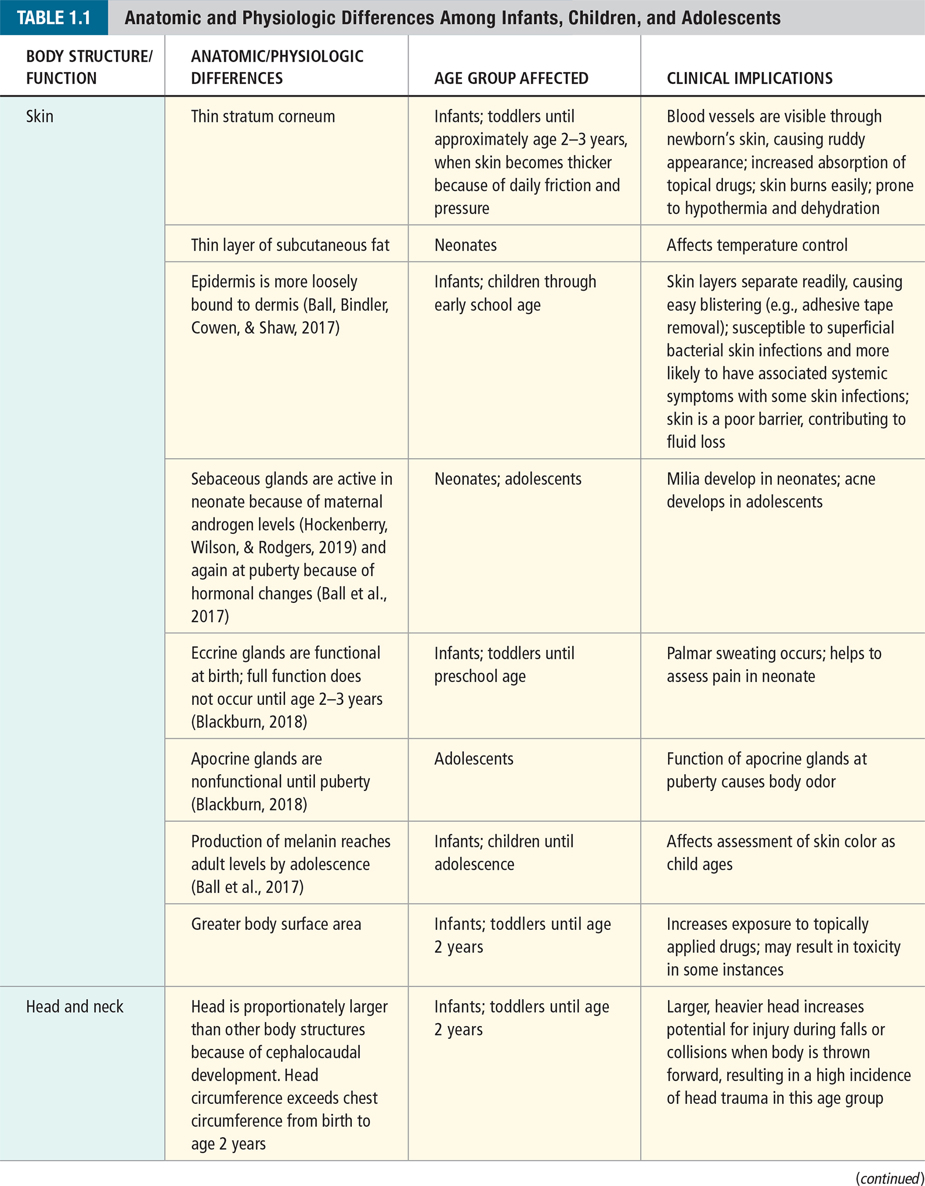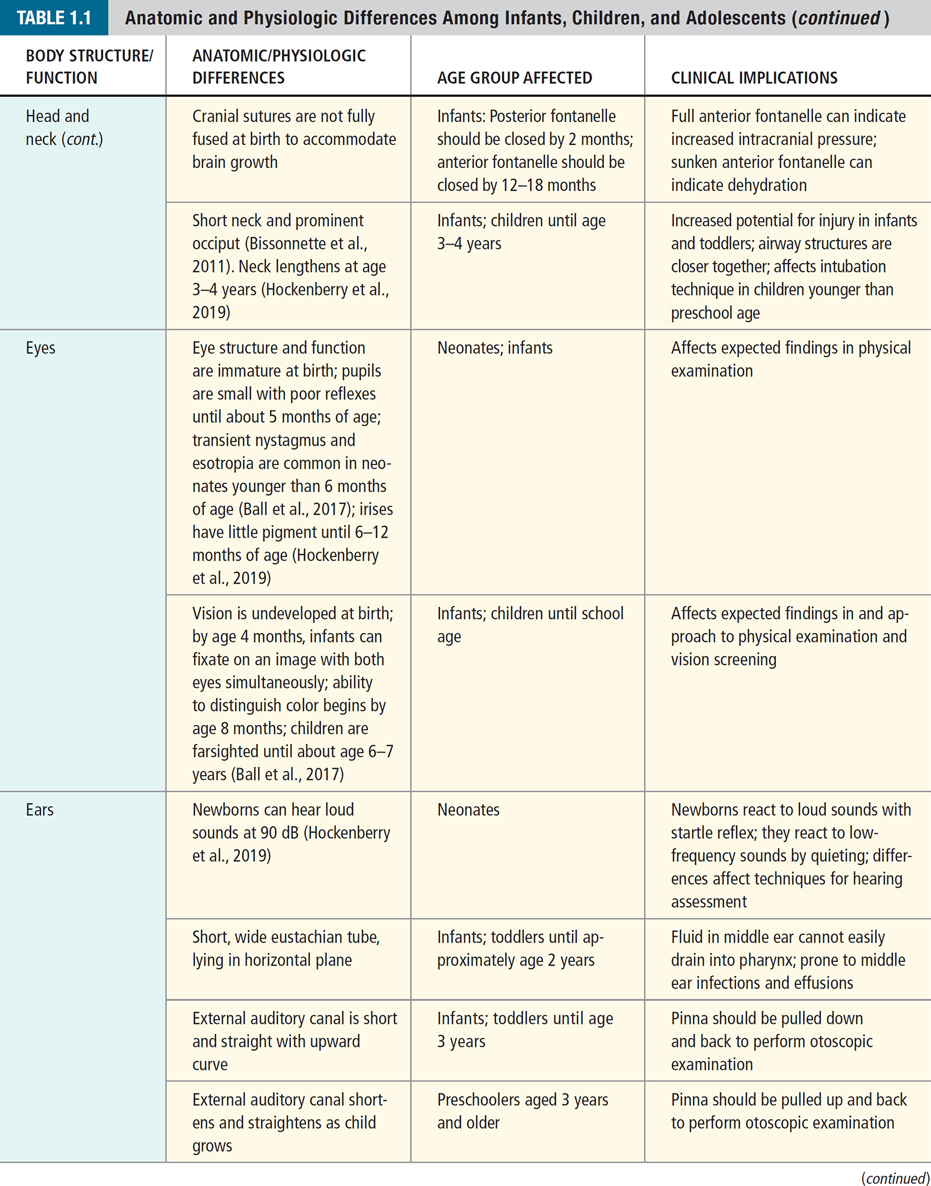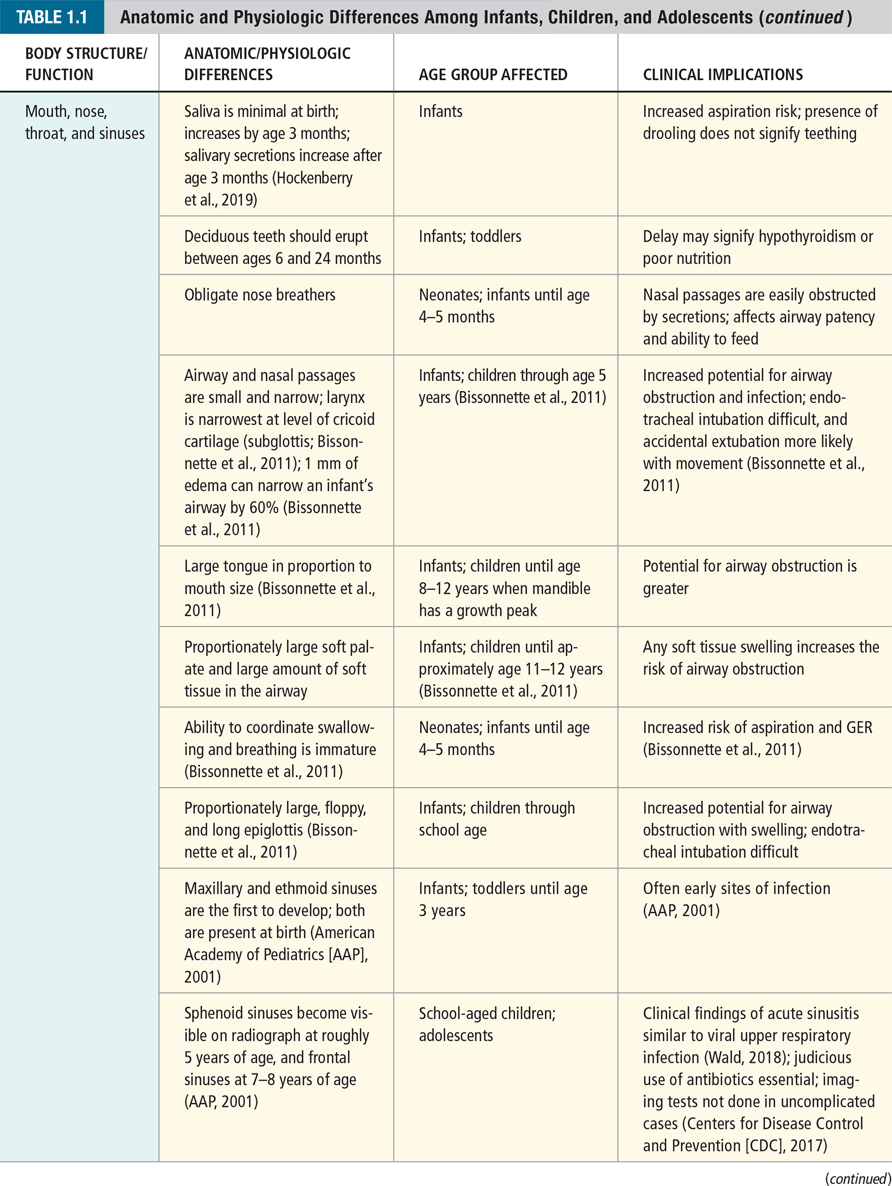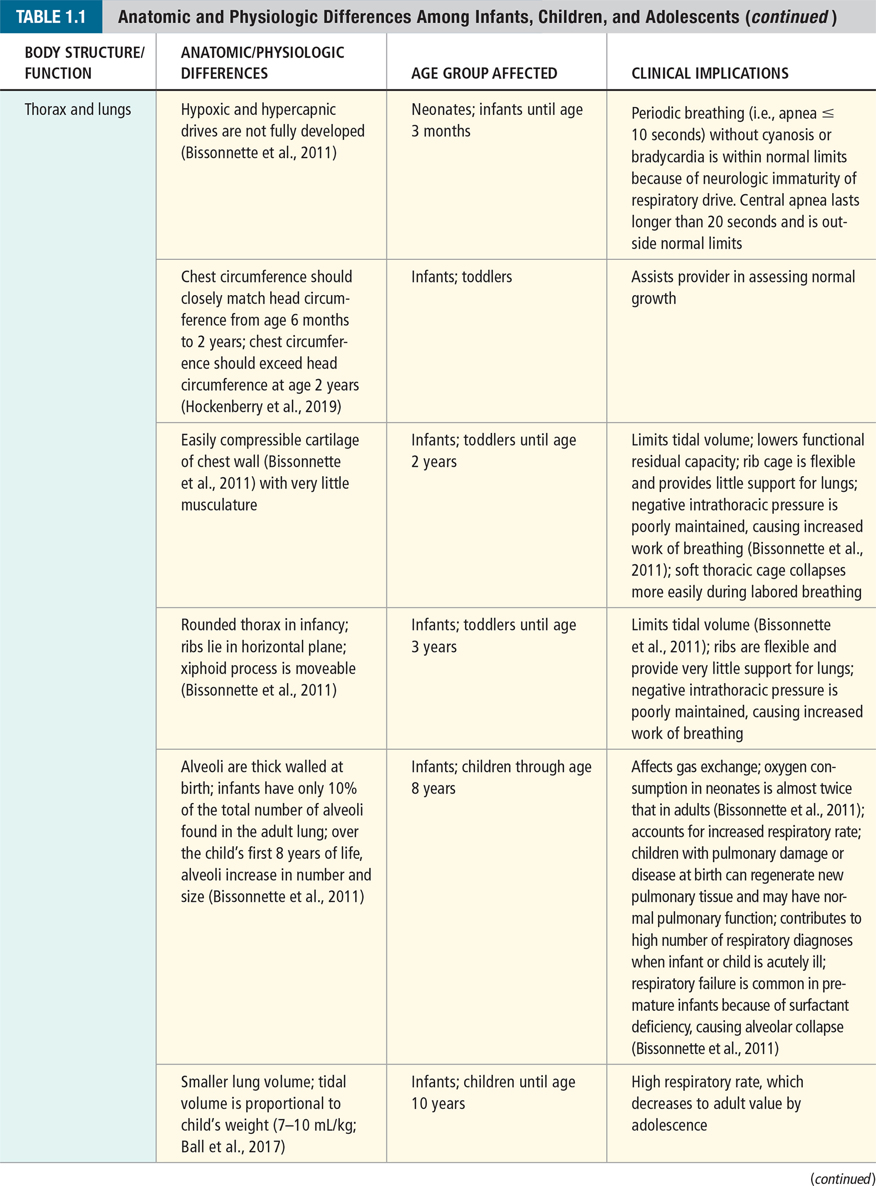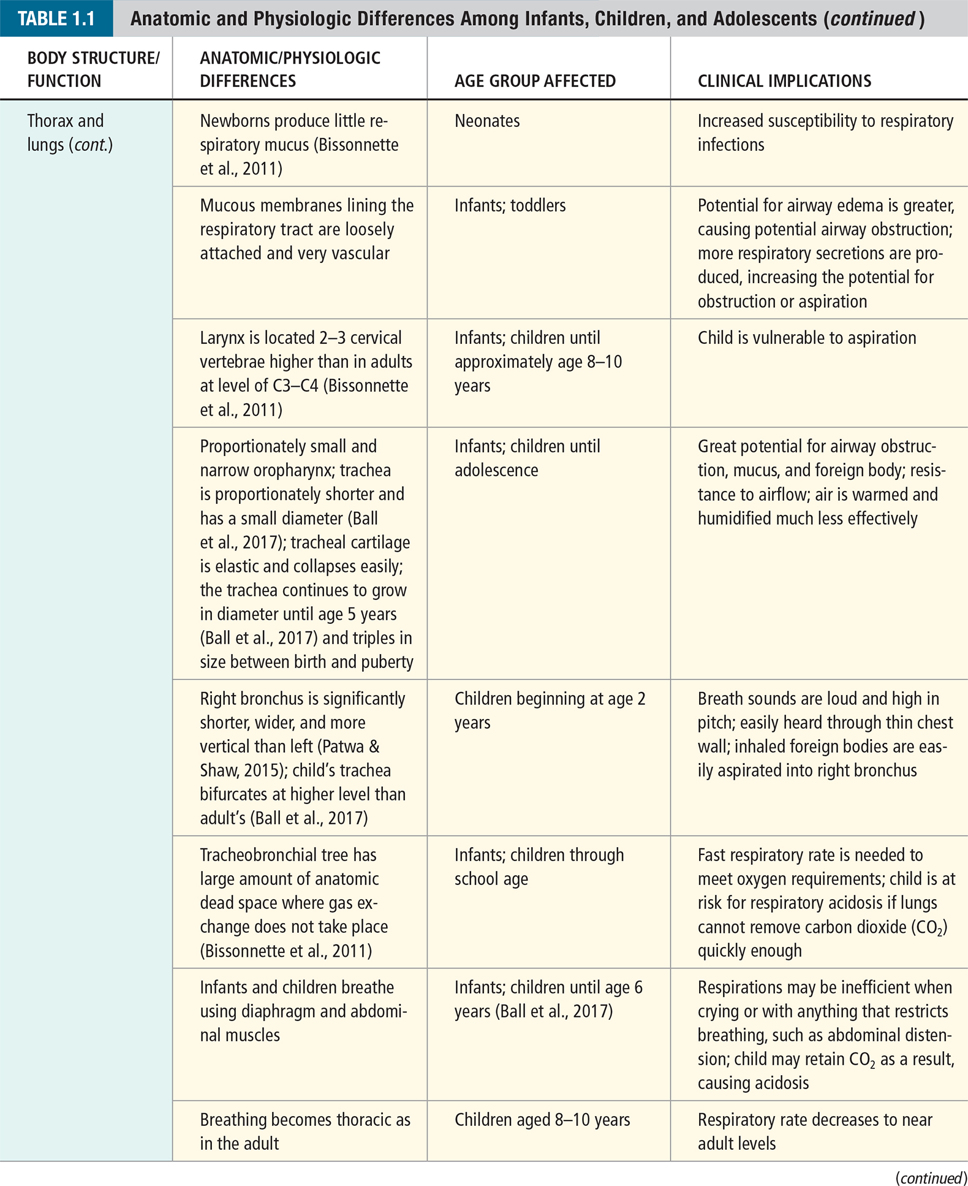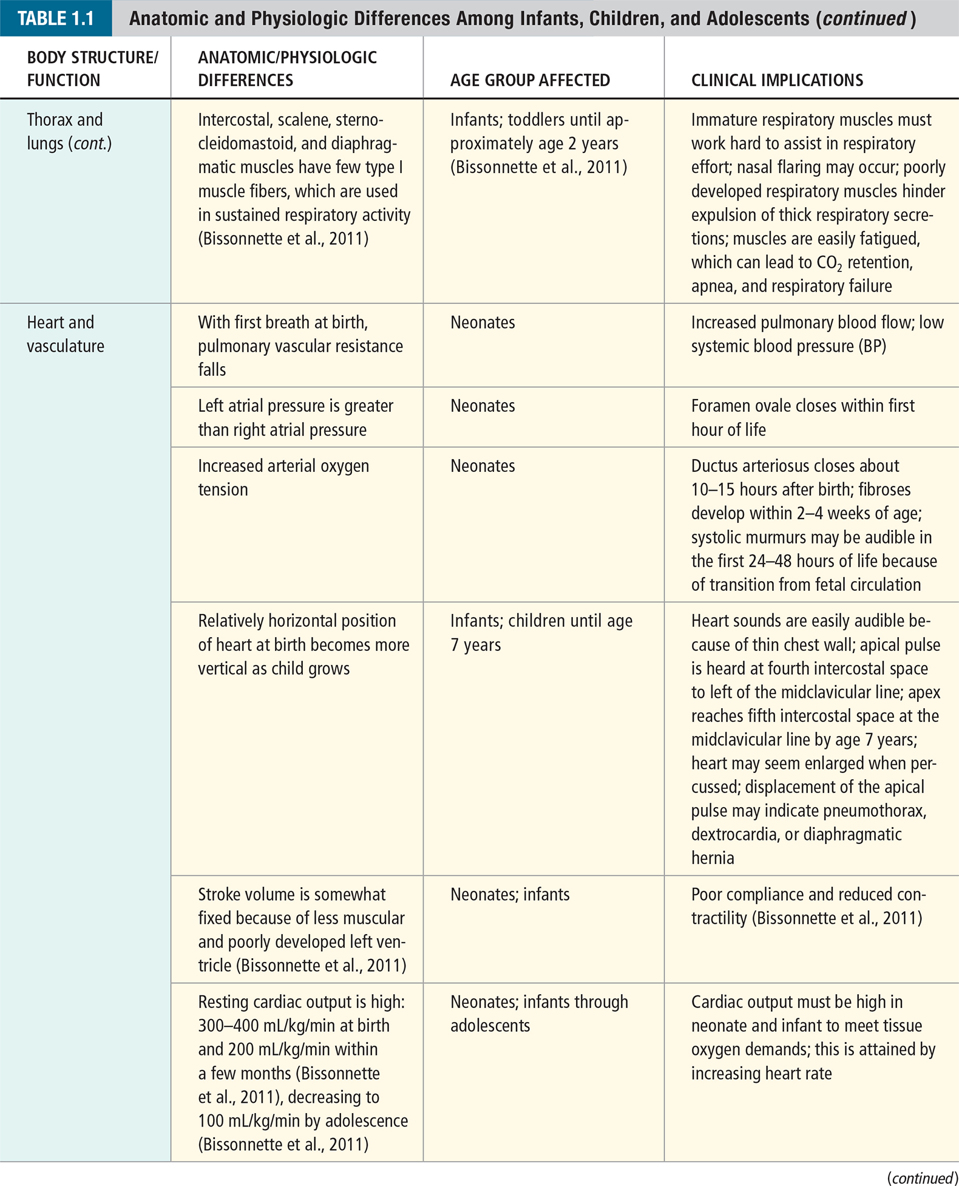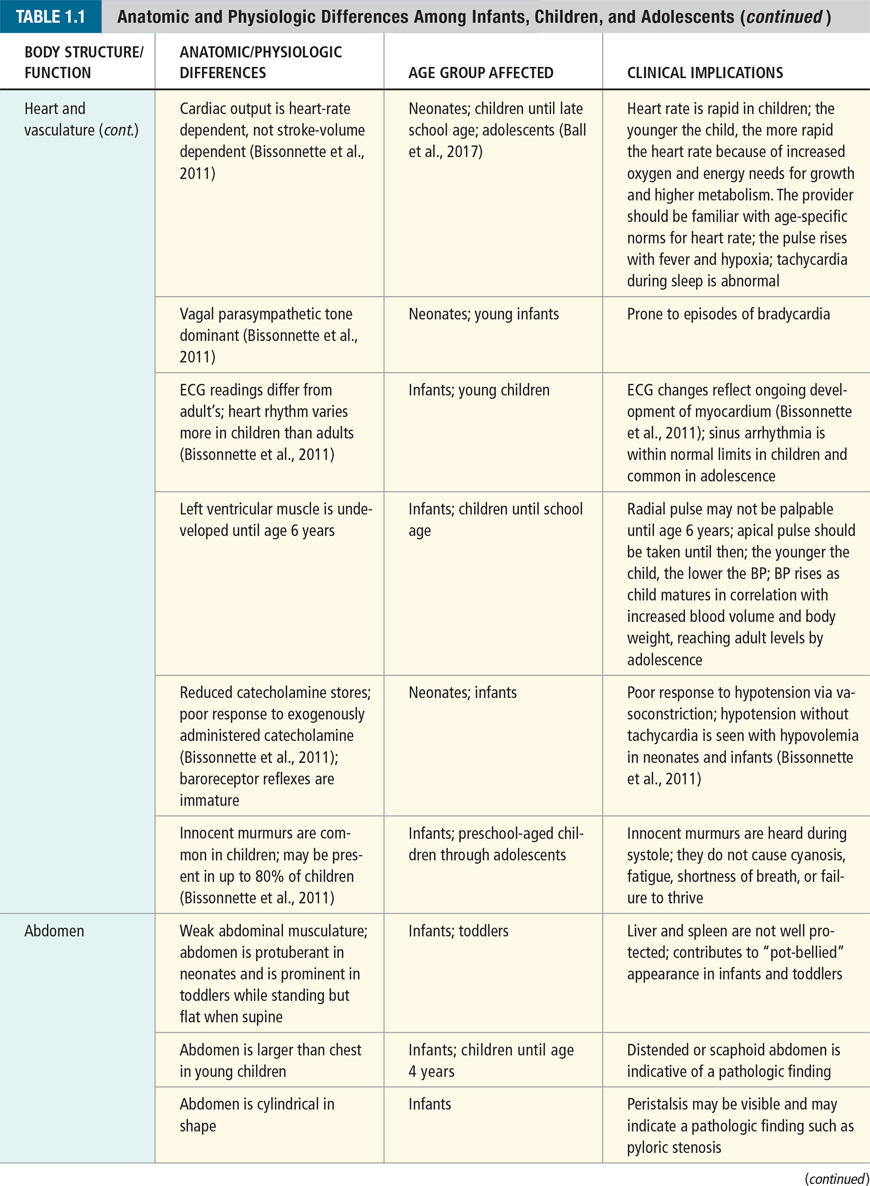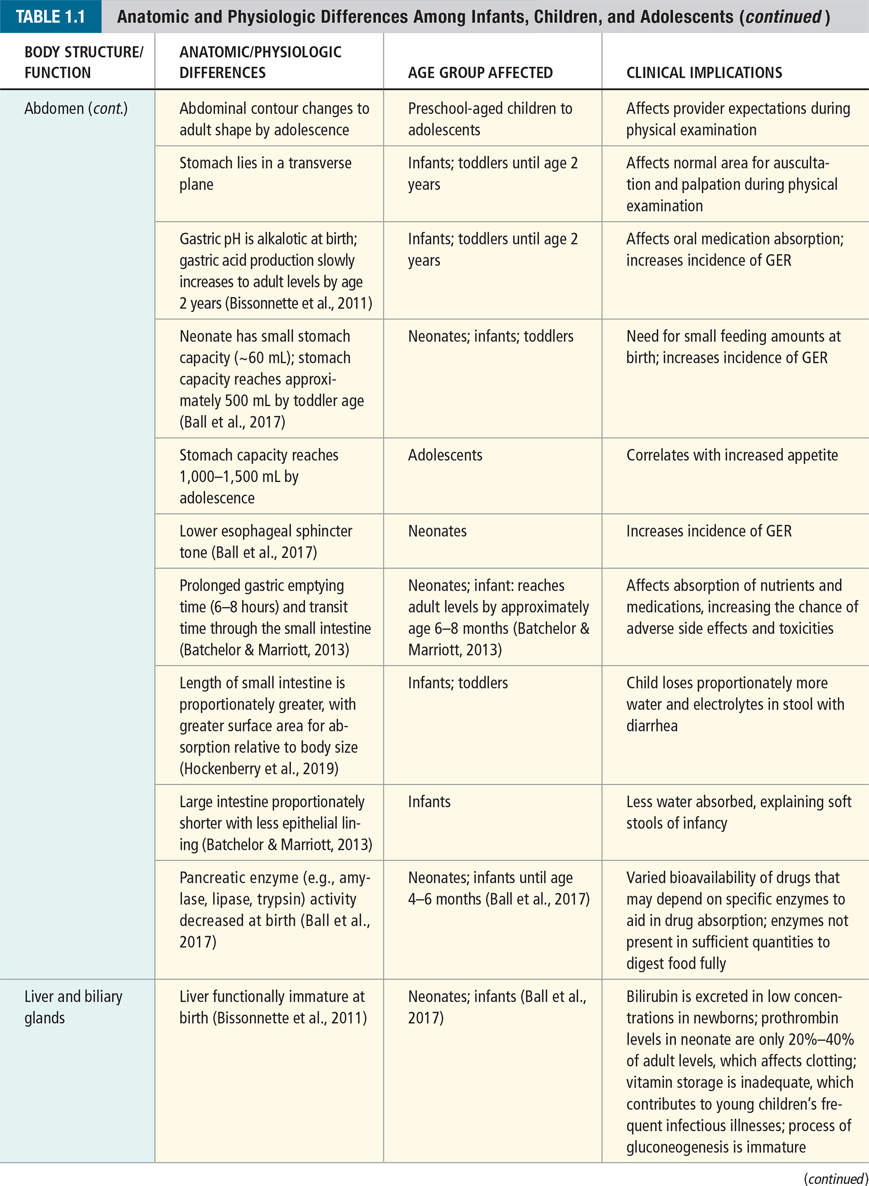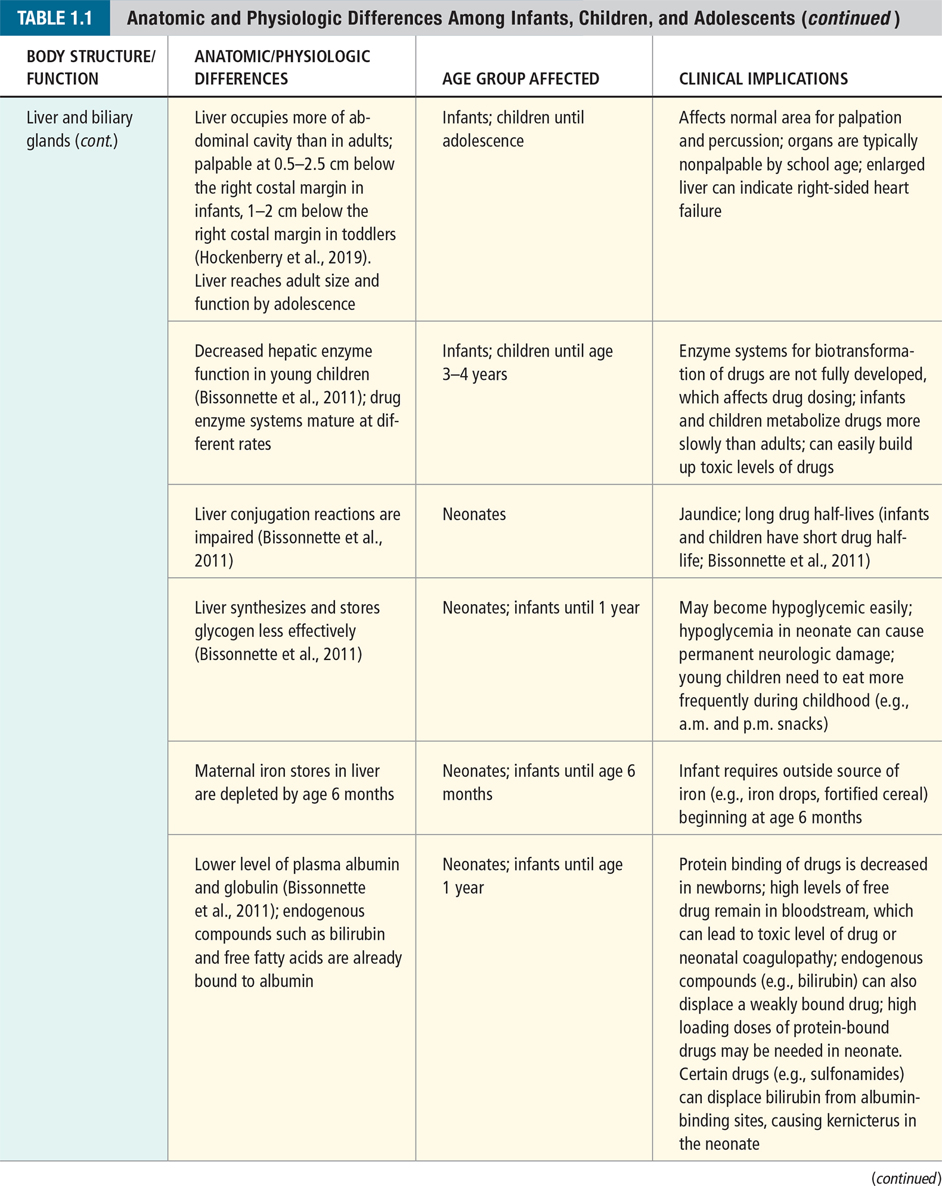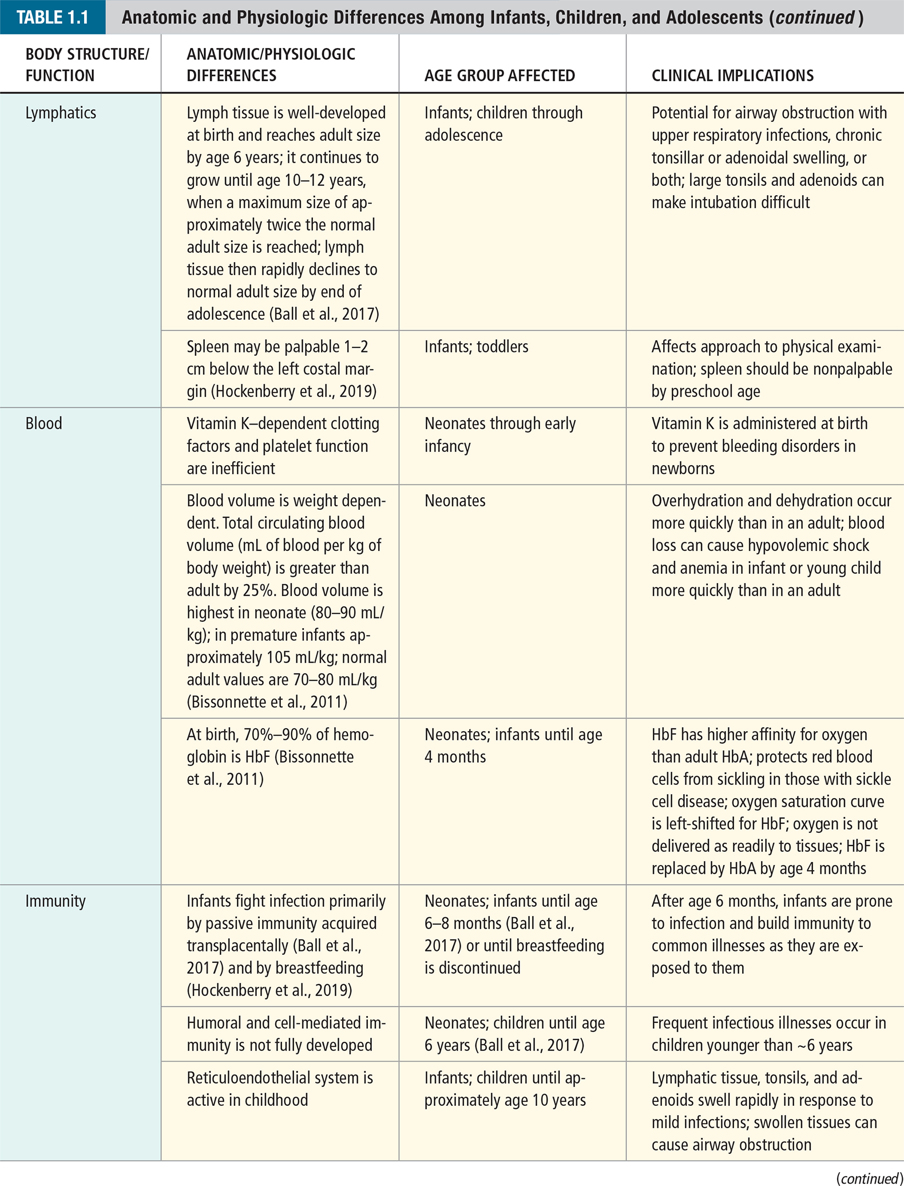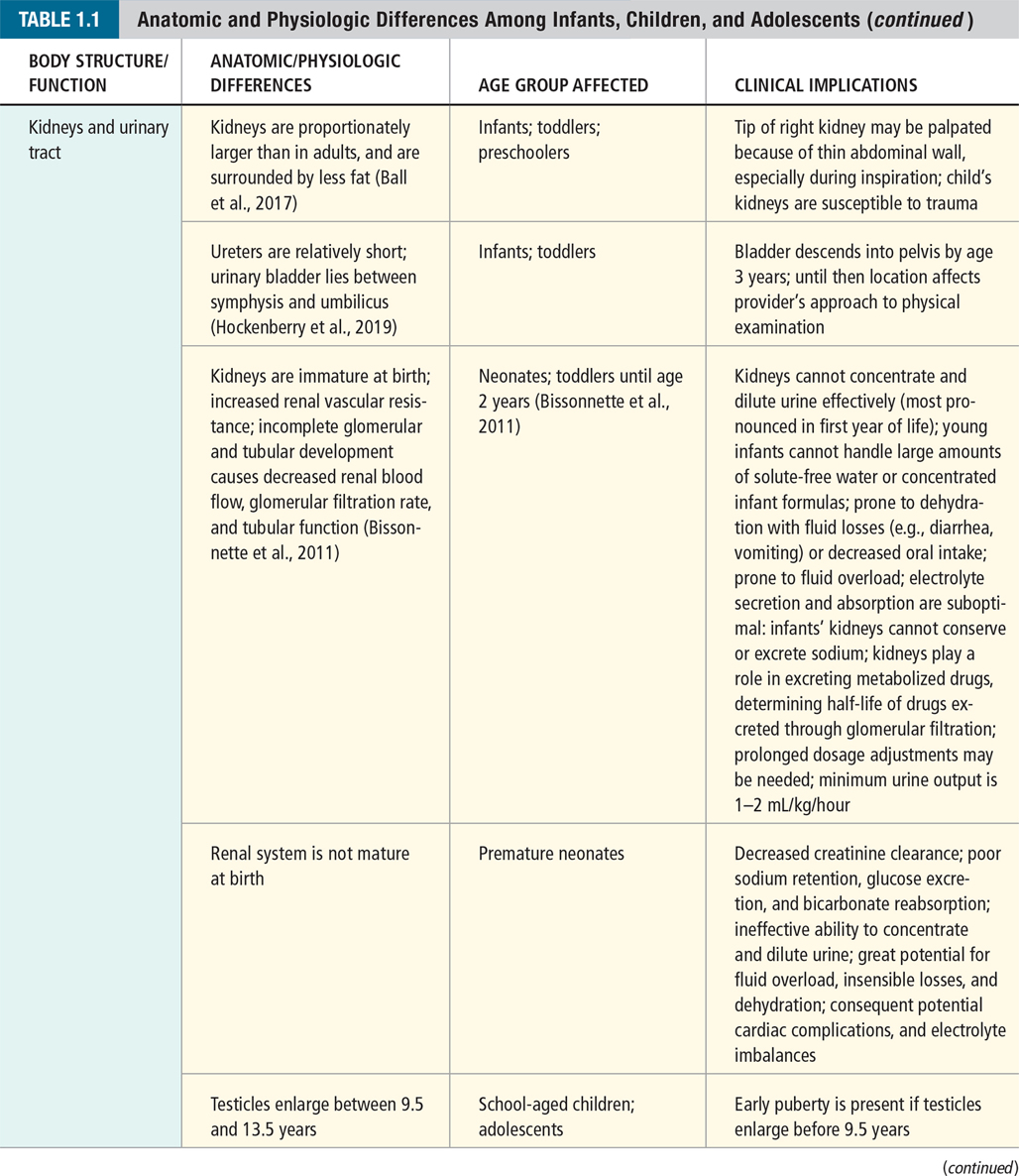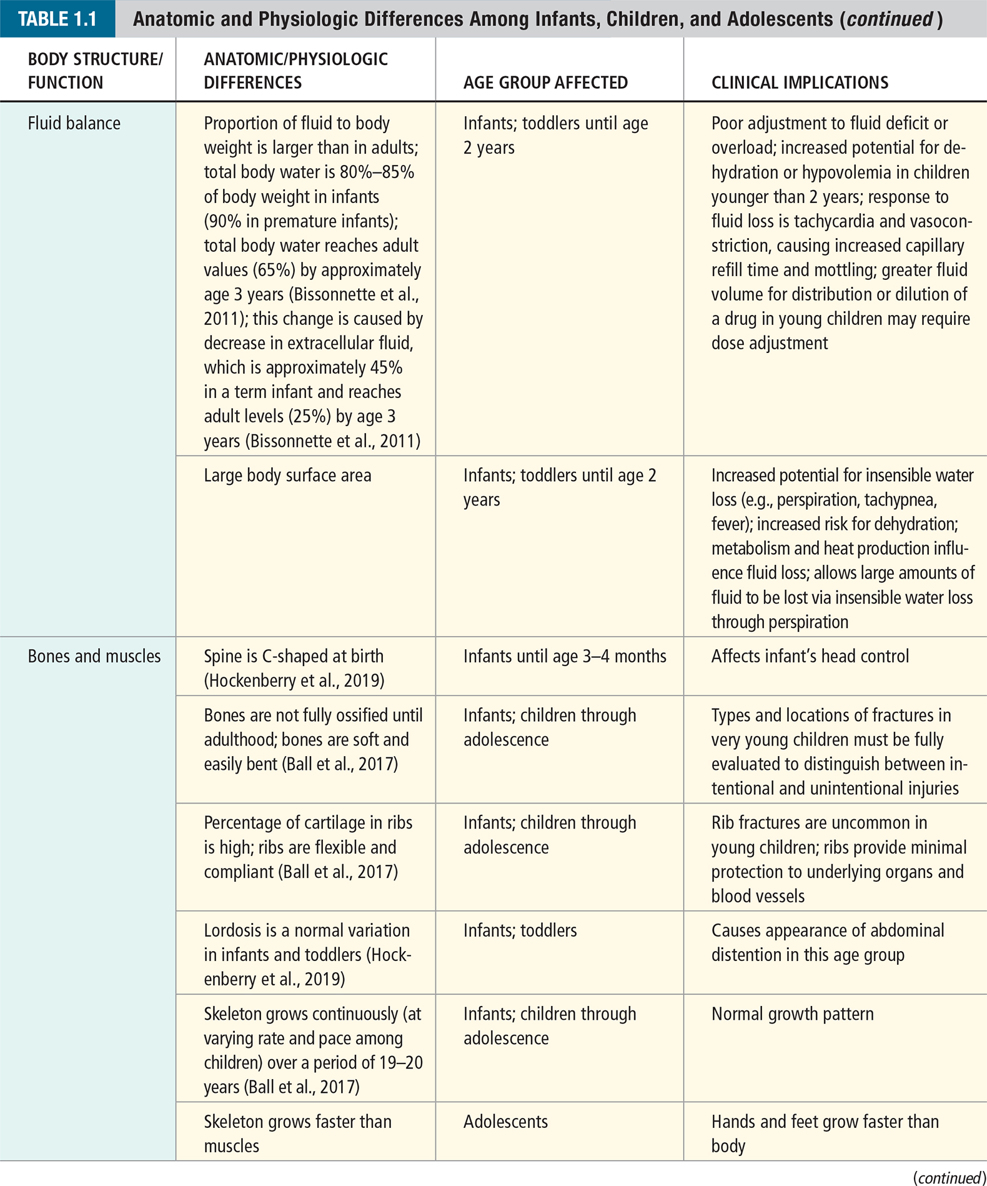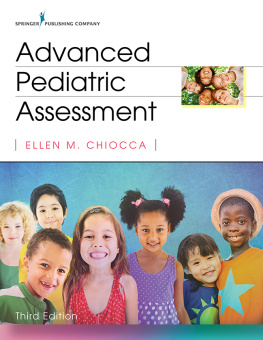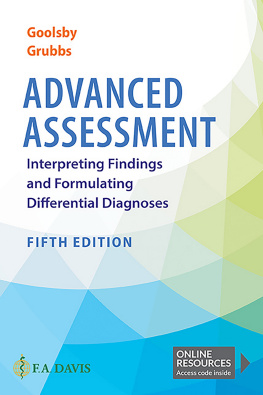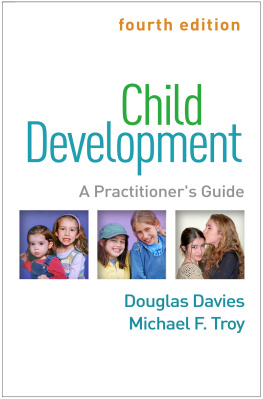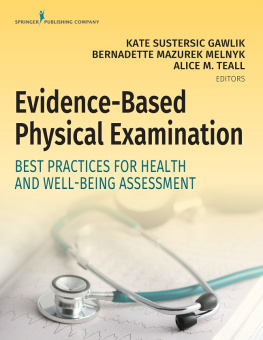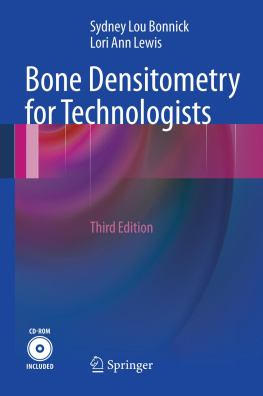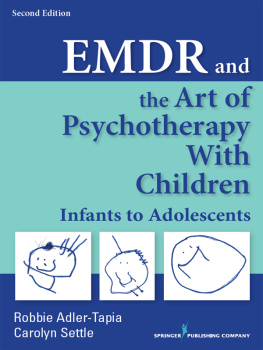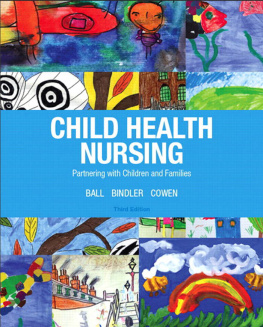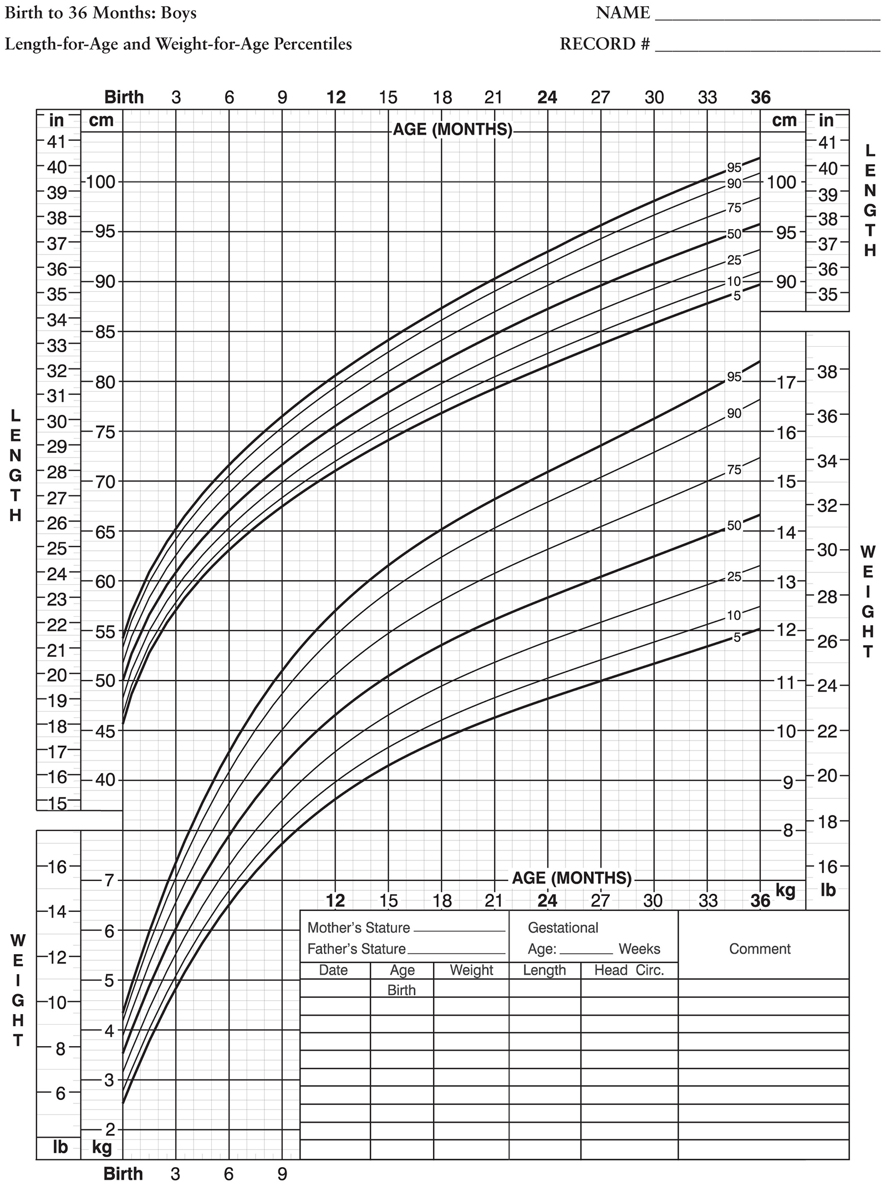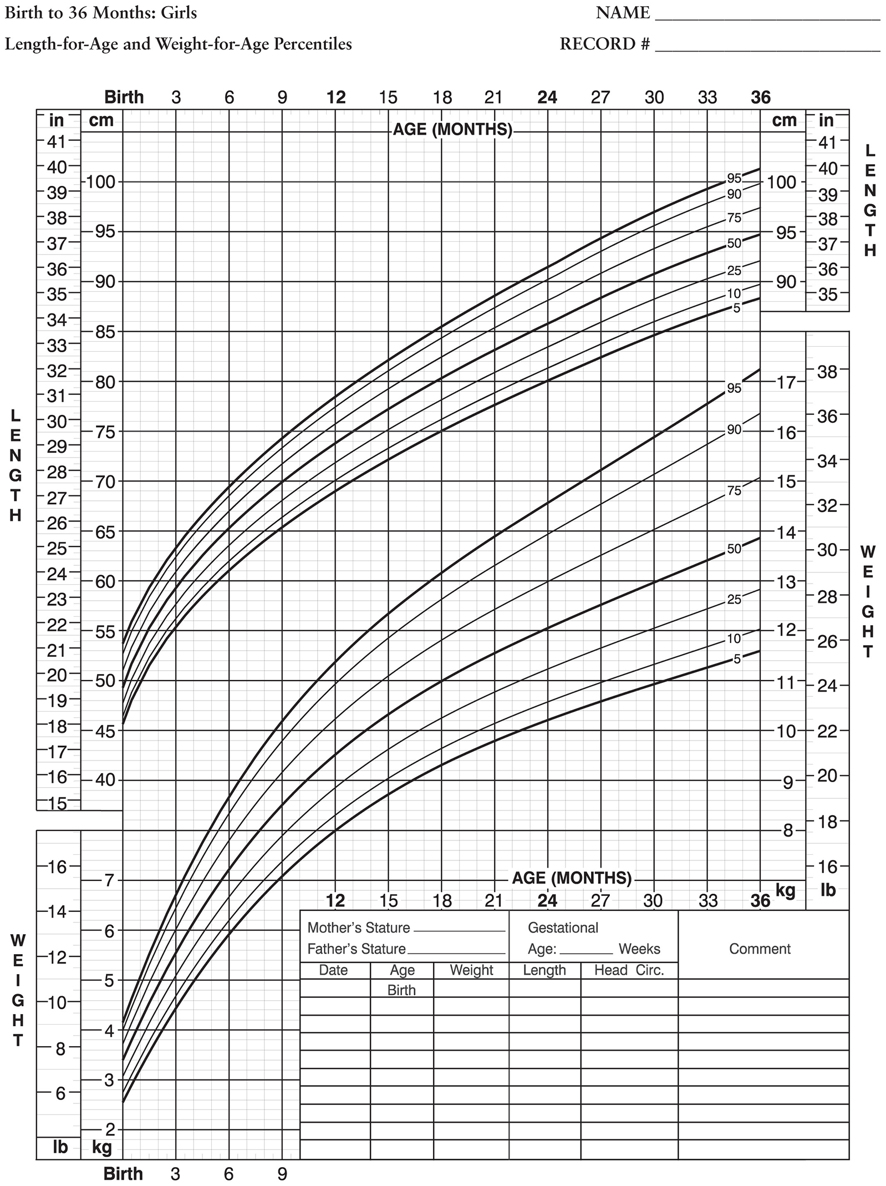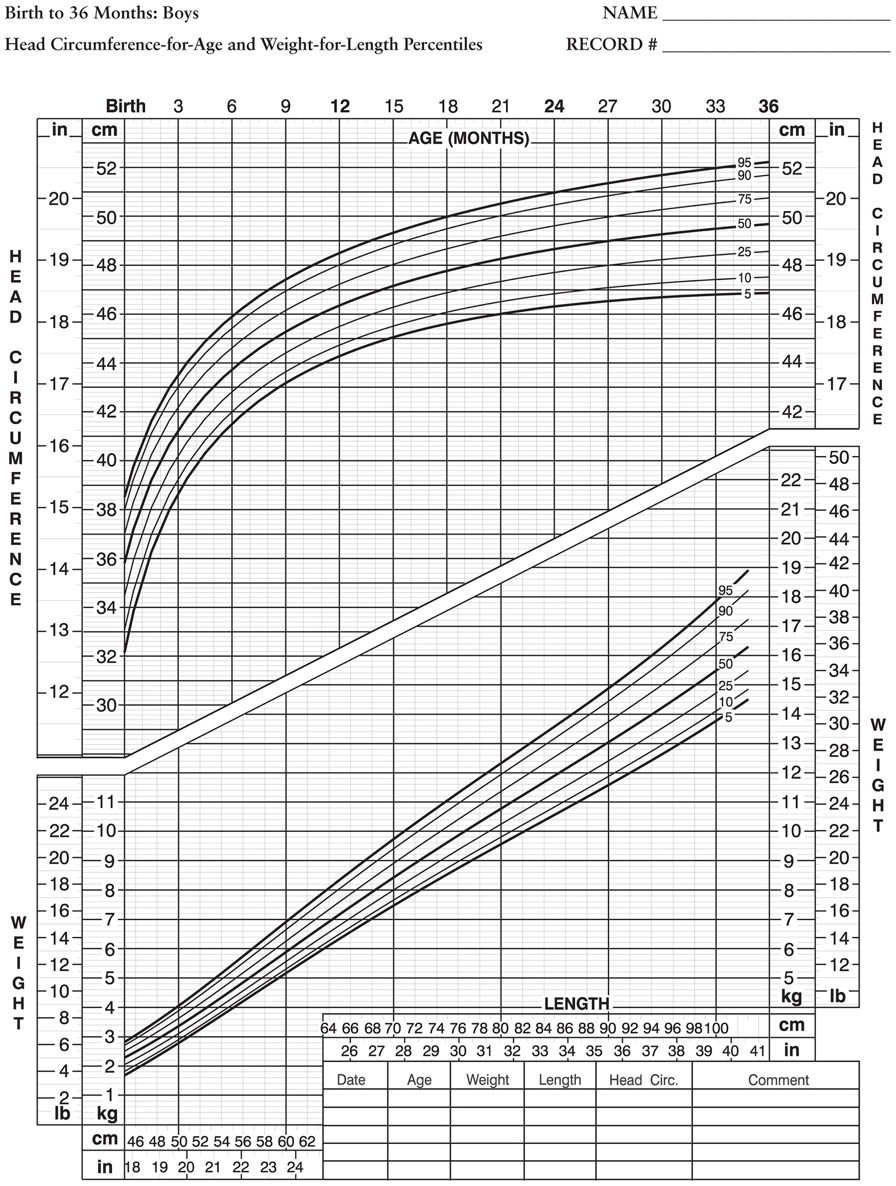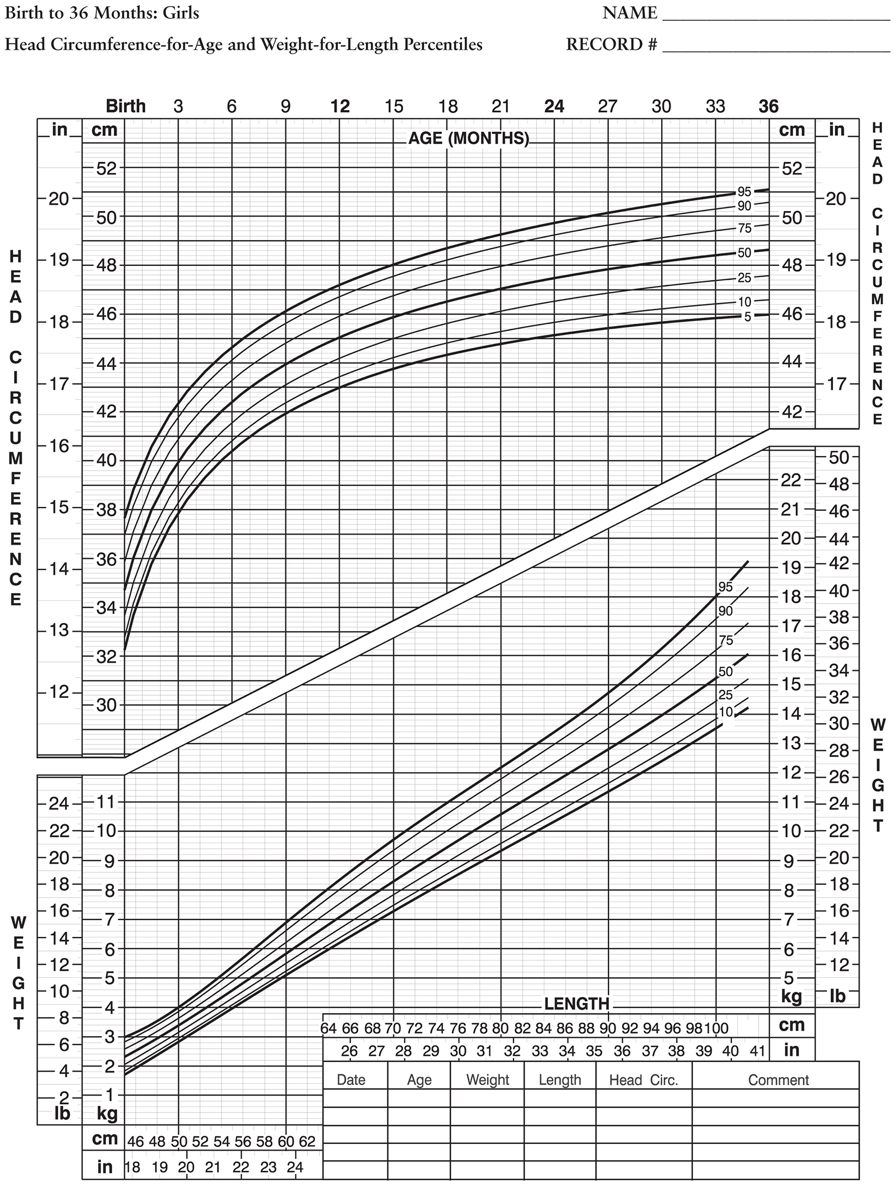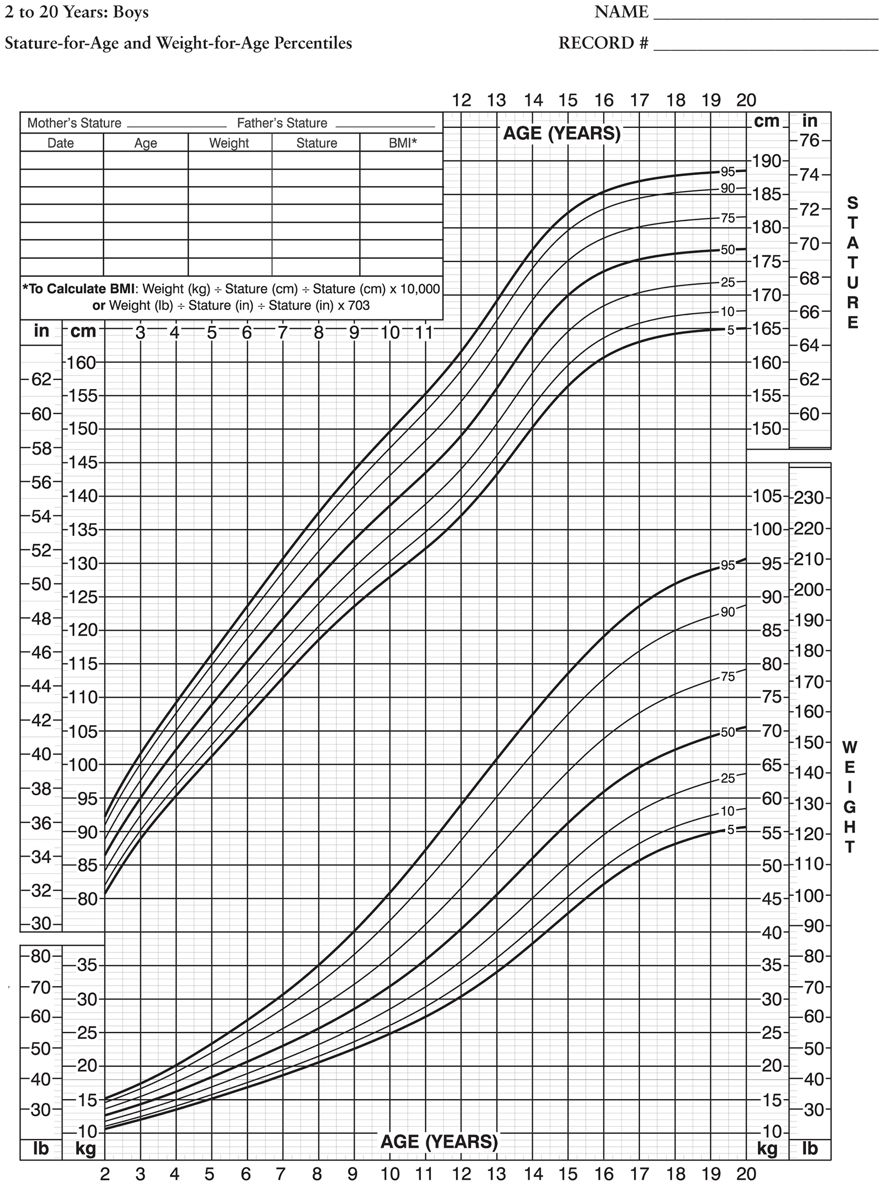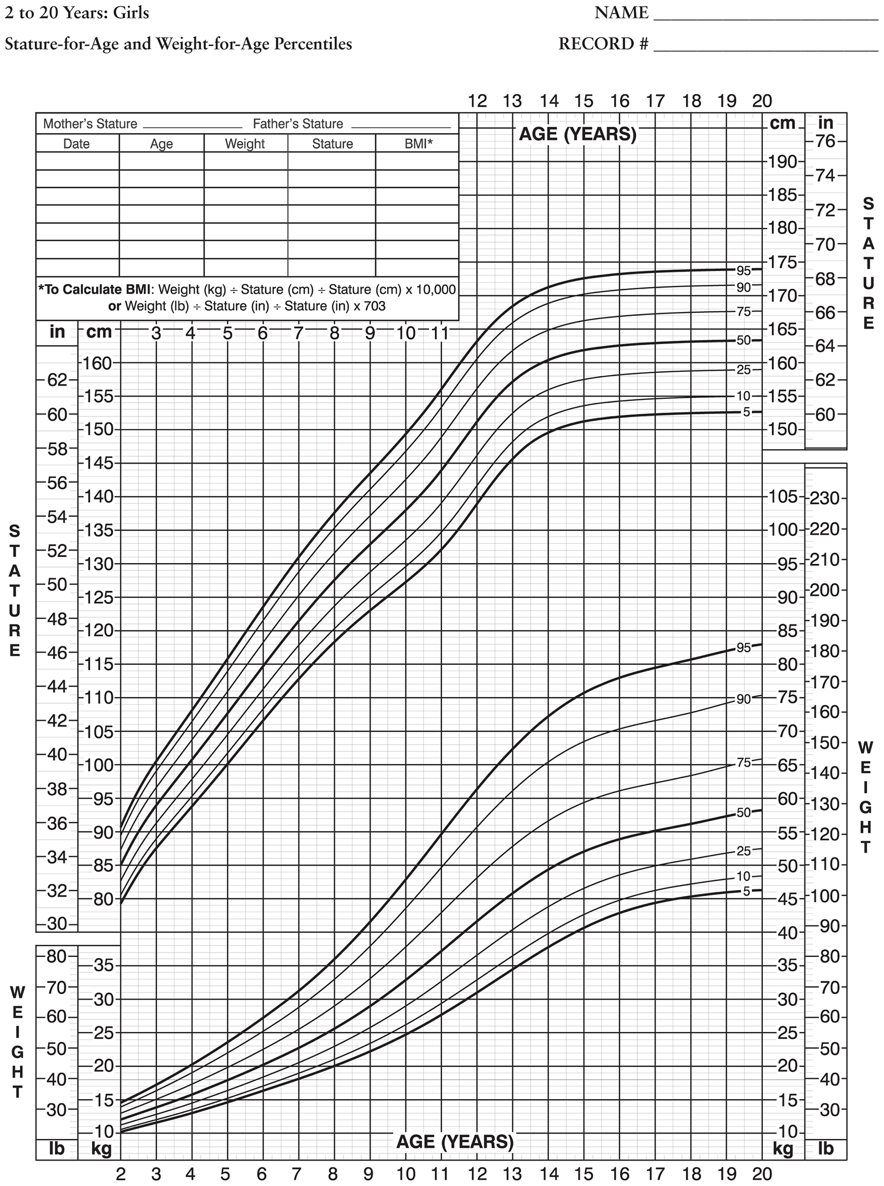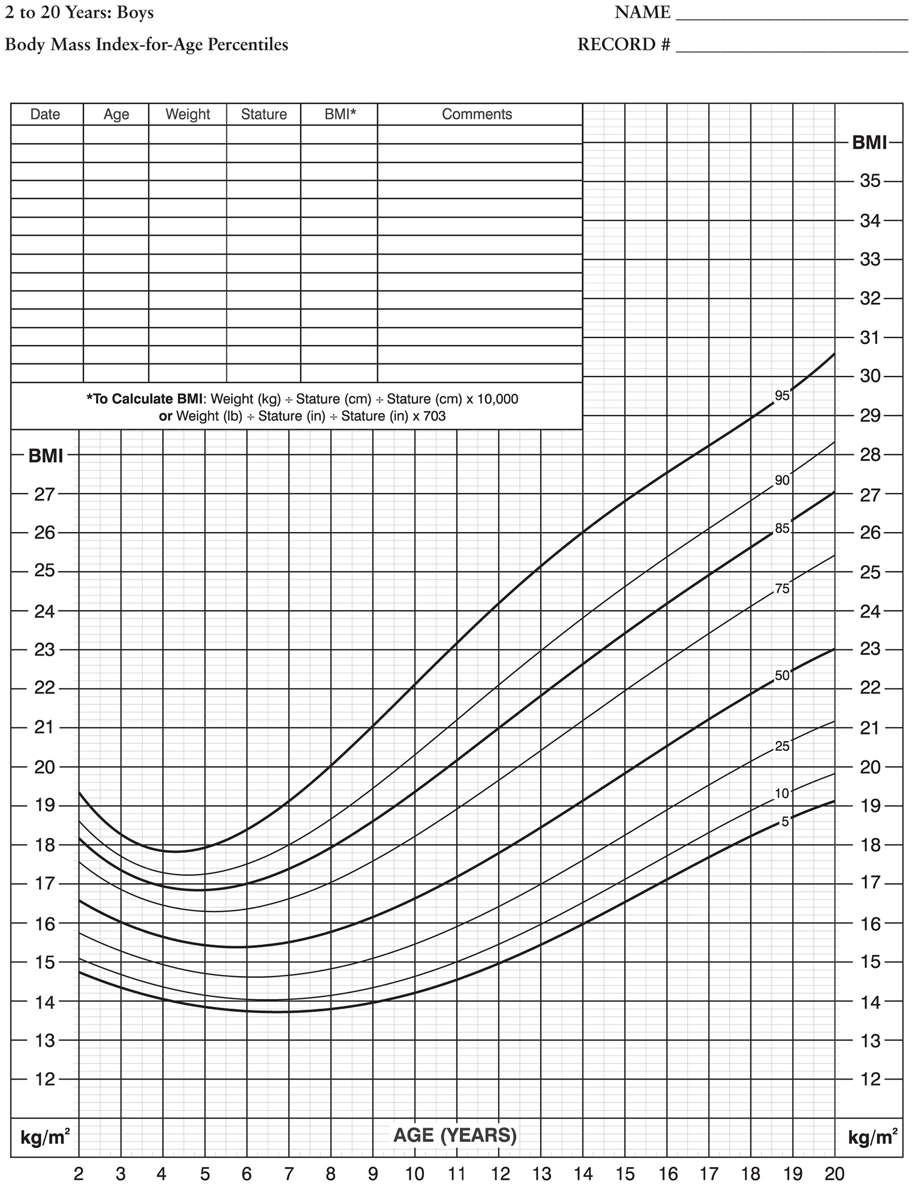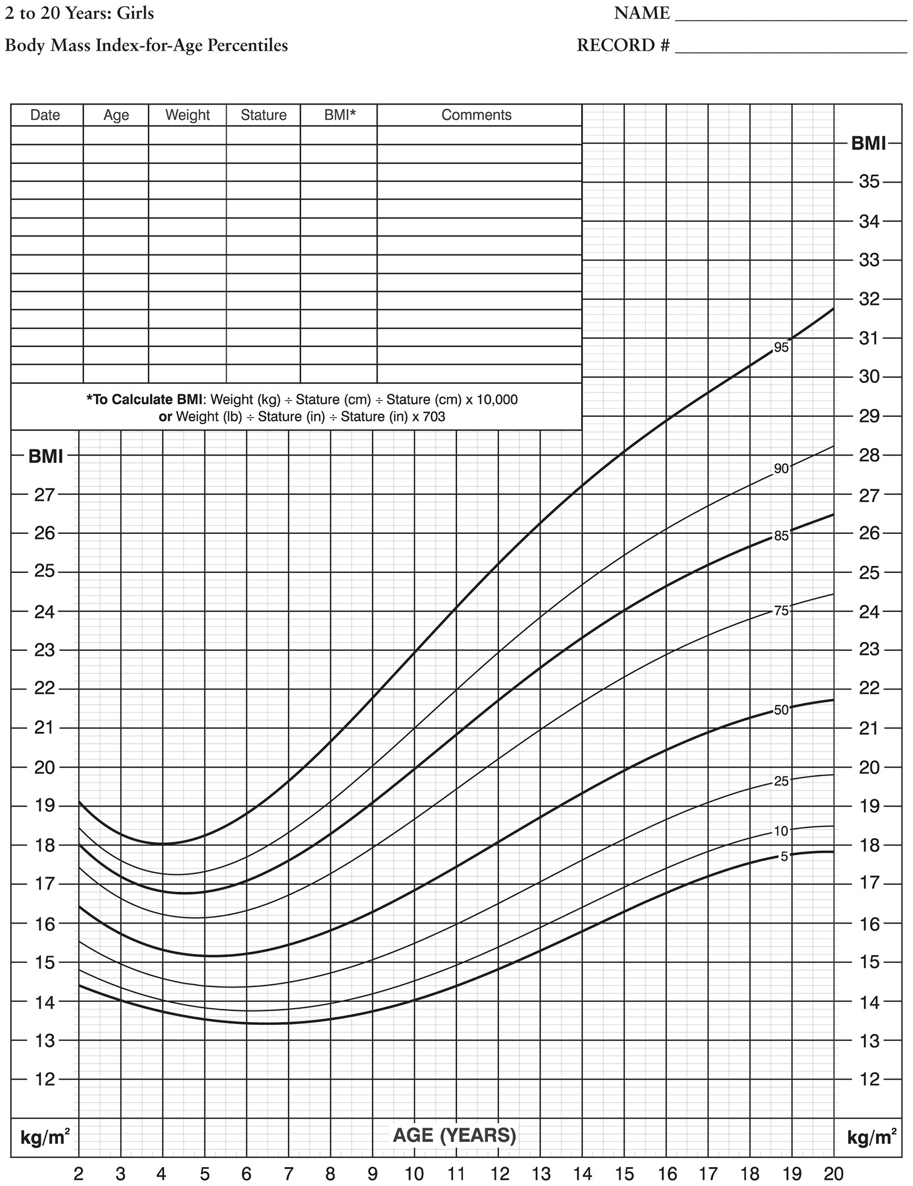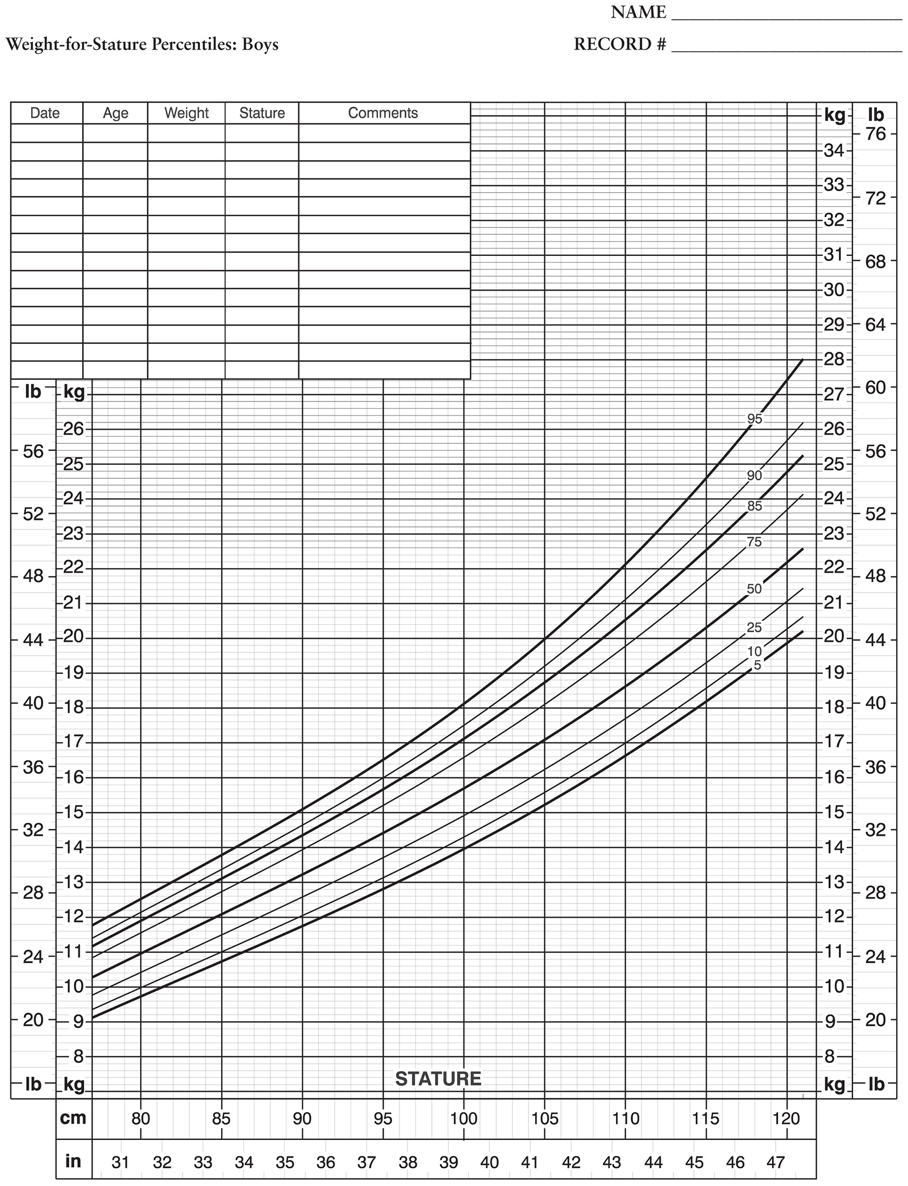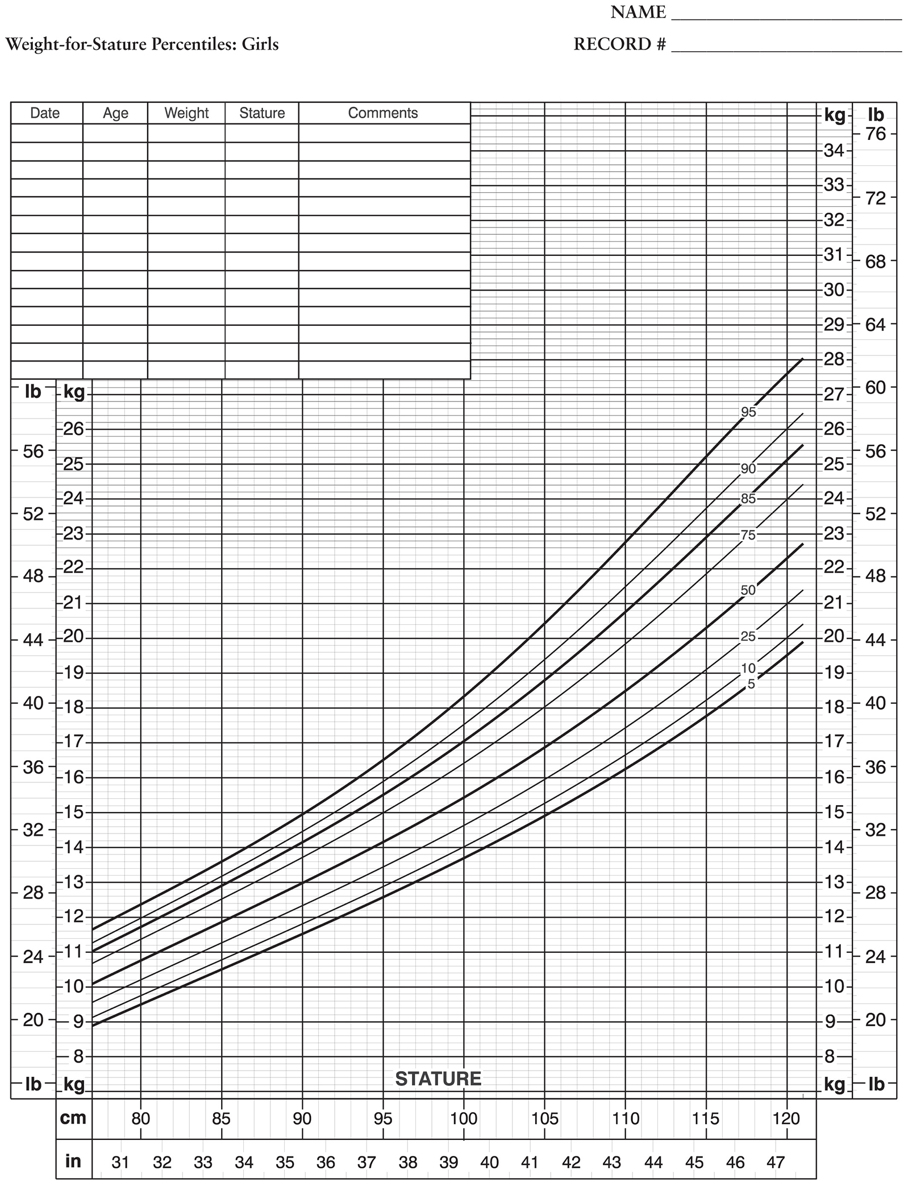APPENDIX A
Normal Vital Signs in Infants, Children, and Adolescents
Normal Heart Rate and Respiratory Rate Ranges
| AGE | HEART RATE, NORMAL RANGE (BEATS PER MINUTE) | RESPIRATORY RATE, NORMAL RANGE (BREATHS PER MINUTE) |
|---|
| Preterm | 141171, depending on chronologic age | 4070, depending on chronologic age |
| Neonate | 95170 | 3050 |
| 111 months | 90170 | 3045 |
| 12 years | 90150 | 2030 |
| 34 years | 70130 | 2030 |
| 57 years | 65130 | 2025 |
| 811 years | 70110 | 1422 |
| 1215 years | Female: 70110Male: 65105 | 1220 |
| >15 years | Female: 5595Male: 5090 | 1220 |
Normal Temperature Ranges
| AGE | FAHRENHEIT | CELSIUS |
|---|
| Preterm infant | 97.798.6 | 36.537 |
| Term infant | 97.299.9 | 36.237.7 |
| 06 months | 97.299.4 | 36.237.4 |
| 612 months | 9699.7 | 35.637.6 |
| 113 years | 95.999 | 35.537.2 |
| >13 years | 96.499.6 | 35.837.6 |
Note: Measurement method and circadian rhythm must be considered in evaluating normal.
APPENDIX B
Centers for Disease Control and Prevention Growth Charts
CHAPTER 
Child Health Assessment: An Overview
CHAPTER OUTLINE
Overview of Pediatric Health Variations
Anatomic and Physiologic Differences in Infants and Children
Growth and Development
Communication Skills Required to Work With Children
Obtaining the Pediatric Health History
The Pediatric Physical Examination
Understanding the CaregiverChild Relationship
Role of the Pediatric Healthcare Provider
OVERVIEW OF PEDIATRIC HEALTH VARIATIONS
Children experience dramatic changes in their bodies and minds, beginning at birth and continuing through adolescence. Because of these anatomic, physiologic, and developmental changes, it is crucial for the pediatric healthcare provider to possess specialized knowledge and skills to accurately assess infants, children, and adolescents during health and illness. Concepts related to health assessment and physical examination of the adult patient cannot be applied to children; they are not simply little adults. In order for the healthcare of children to be safe, thorough, and developmentally appropriate, the pediatric healthcare provider must ensure that child health assessment is based on a thorough knowledge of pediatric anatomy and physiology, pathophysiology, pharmacology, and child development. The childs social situation, the community in which he or she lives, and the familyss culture are other important components that should be included. In addition, when working with children of different ages and developmental levels, effective, developmentally appropriate communication skills are essential. These skills are used to build rapport with children, their families, or caregivers, as well as to provide clear and objective documentation of assessment findings.
Anatomic and Physiologic Differences in Infants and Children
To recognize abnormalities found during the physical examination, the pediatric healthcare provider must have strong knowledge of the anatomic and physiologic differences among infants, children, and adults. Because each body system is immature until at least age 2 years, the provider must adjust expectations for physical findings according to the childss age. In addition, an infant or young childss physical condition can go from stable to life-threatening very quickly because of immature body systems that lack fully developed feedback mechanisms. This helps to explain both the varied physiologic responses seen in infants and children, and why infants and young children absorb, distribute, metabolize, and excrete drugs very differently than do adults. These factors affect the frequency, timing, and length of pediatric healthcare visits. presents an overview of the major anatomic, physiologic, metabolic, and immunologic differences among infants, children, and adults and the corresponding clinical implications of these differences.
